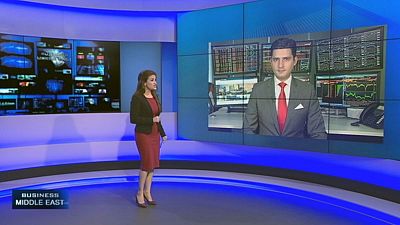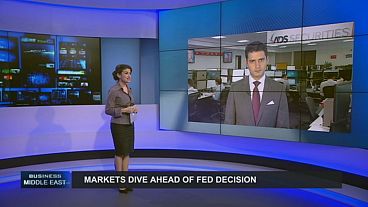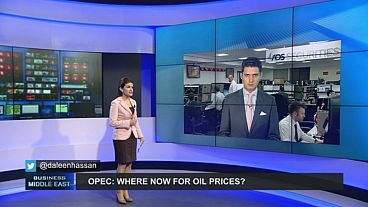Global markets endured turbulent times last week amid uncertainty about monetary easing policies in the eurozone and Japan. ECB chief Mario Draghi
Global markets endured turbulent times last week amid uncertainty about monetary easing policies in the eurozone and Japan. ECB chief Mario Draghi undermined market hopes by not confirming his intention to increase quantitative easing in the eurozone. Then investors’ expectations of further QE in Japan rose.
How did these moves affect the performance of global markets?
There were high expectations last week in the global markets that the European Central Bank might raise its quantitative easing programme. However, Draghi made comments to the European Parliament dampening hopes of a strengthening of the QE program:
“The asset purchase program has sufficient in-built flexibility. We will adjust its size, composition and duration as appropriate, if more monetary policy impulse should become necessary.” he said.
Which Way Wednesday: #Draghi$SPY$DIA$QQQ#Hedging#Shutdown — http://t.co/sYigqlzLagpic.twitter.com/WSysn3kS2s
— Phil Davis (@philstockworld) September 23, 2015
The European markets ended the week down. Spain’s index lost 3.65%, the DAX in Germany dropped 2.85%, France’s CAC 40 dipped more than 2.50%.
Asian markets recovered by the end of the week on data from Japan raising the possibility of an increase in stimulus there. Despite a decade of QE the spectre of deflation persists.
The Nikkei closed up Friday at more than 1 percent, China’s Shanghai Composite Index nudged higher at just over half a percent.
QE or not QE
For an analysis of the week’s events in global markets BME’s Daleen Hassan spoke to ADS Securities’ Chief Strategist Nour Eldeen Alhammoury in Abu Dhabi. Daleen Hassan: “Despite efforts from the Tokyo government to stimulate the economy, recent data showed that Japan’s recovery may be elusive. Why?”
Nour Eldeen Alhammoury:“Quantitative easing sometimes has a negative effect in the long run, especially if it continues for a long time. This might be the case in Japan right now. The QE program had a positive impact on the economy, because it emerged from deflation for some time. However, the introduction of a sales tax hike, which is a policy of the Abe government, had a notable negative impact on the economy. Moreover, the government is looking to increase the tax again next year, which may have another negative impact. As for the current QE, its already large and the bank has intentions to raise it even further. The economy needs additional stimulus measures apart from QE.”
Daleen Hassan: “Last week, the markets experienced disappointment after Draghi’s remarks, then in Japan the was increased speculation on QE. How is the market pricing the expectations of monetary easing policies?”
Nour Eldeen Alhammoury: “There is something really important that everyone should be aware of. The market did not benefit for a long time from the anticipation of an increase in QE in Japan. The QE speculation increased in Japan after the latest remarks from Draghi, who disappointed the markets with no hints of more QE in the eurozone. This is because of ongoing uncertainty about the Federal Reserve’s outlook, and upcoming key decisions.
“Therefore, investors rushed back to safe haven assets like gold, which gained more than 8% in the past two weeks, in addition to the Japanese Yen and bonds. The most important point here is that the markets always price on future events and not on established facts. This is why shocks are always possible, especially if central bank’s decisions are contrary to markets estimates, or if they delay a possible decision on a rate hike. This is the case with the ECB and the Fed.”
Daleen Hassan: “In the case of increased quantitative easing in Japan and Europe, how could it impact on currency trading and Middle East markets?”
Nour Eldeen Alhammoury: “Well, raising any quantitative easing programme will, of course, increase liquidity in the global markets. But volatility is likely to rise as well, especially in the stock market and the MENA region is one of these markets, which has benefited from the various QE’s over the past seven years.
“So we believe that raising QE in Japan or Europe would increase the trading volume in the region and elsewhere in the world.”
Poor oil outlook
Standard & Poor’s outlook on oil prices is pessimistic. The agency has trimmed its forecast for crude Brent and West Texas. This coincides with the decrease in the number of drilling rigs due to lower oil prices. After more than a dozen major international financial institutions reduced their forecast for oil prices last month, S&P cut its forecast for crude in 2015. The agency indicated oil prices could take a longer time to recover. For 2015 it expects Brent crude to stay around $50 a barrel and WTI at $45.
For 2016, the price of Brent could
rise to levels of $55 with West Texas crude at $50.
US energy companies also reduced the number of operating rigs for the fourth consecutive week, in what is considered a sign that the continued decline in crude prices has pushed companies to reduce drilling.



